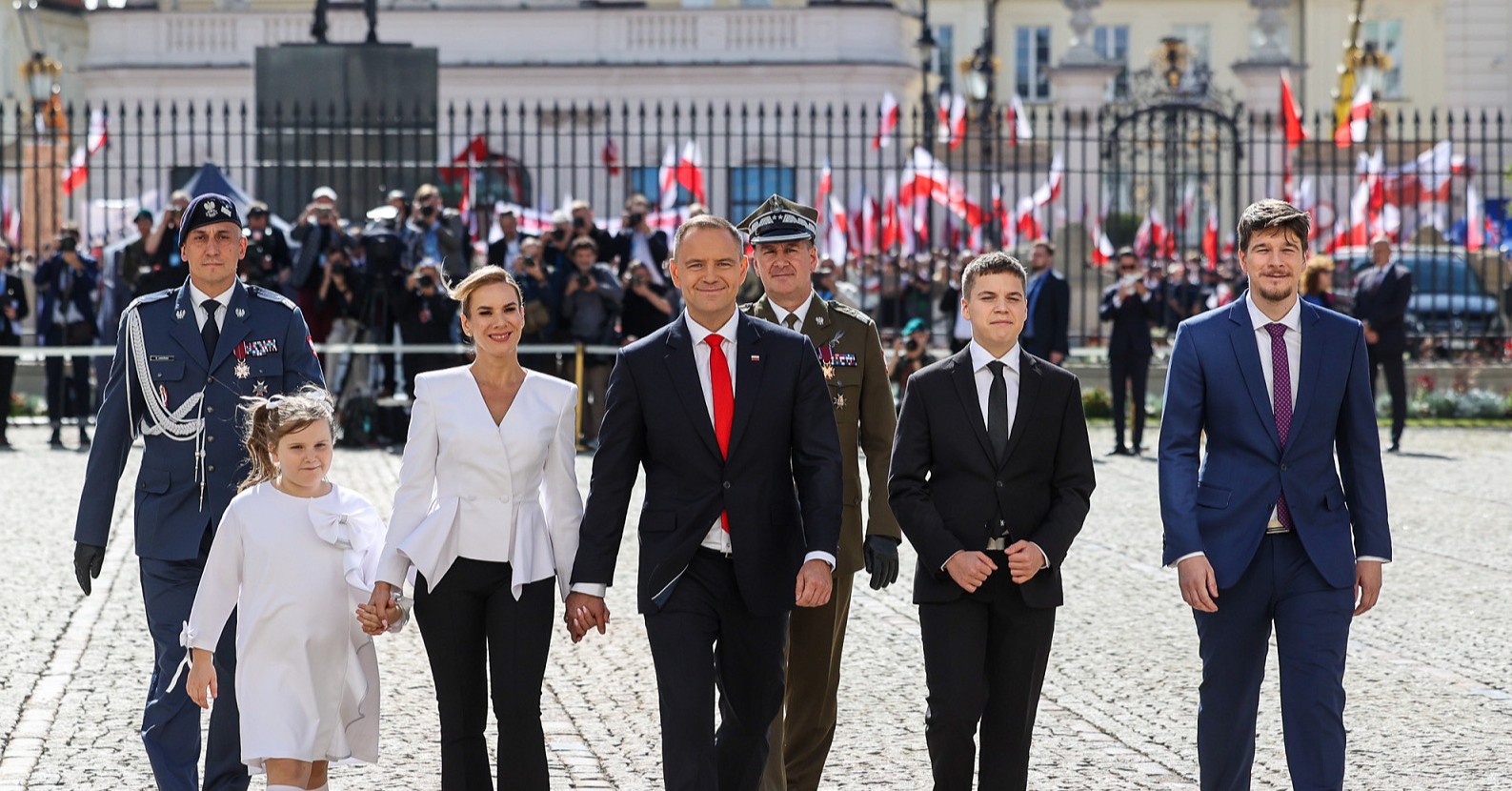New Health Education Program Tests Polish Schools and Society

An attempt to modernize the curriculum ignites an emotional debate over sexual education, parental rights, and how best to protect children from violence.
Replacing the long-standing Family Life Education curriculum, a new program introduced by the Ministry of Education offers a far broader range of topics than the program taught since 1999. Designed to promote health literacy and help children navigate modern risks, the curriculum focuses on physical and mental health, relationships, online safety, and the impact of environmental factors on well-being.
“Now more than ever, this subject is needed,” said Professor Zbigniew Izdebski, head of the team that designed the curriculum. “The world changes quickly, and children have easy access to information that is not always scientifically accurate.”
Starting at age nine, in the fourth grade of primary school, and continuing through their final year of high school, Polish students will have the opportunity to attend the new subject once a week. All students are automatically enrolled, but parents may withdraw their children until 25 September if they wish. When first introduced by the Ministry of Education, the program was intended to be mandatory. However, strong opposition from conservative groups during the recent presidential campaign prompted the decision to make it optional, at least for the coming year. Regardless, Izdebski said he and other supporters of the program would strive to make this subject compulsory in the future.
The sharpest criticism has focused on the inclusion of sexual education in the curriculum, with opponents insisting that teachers will be introducing sensitive subjects prematurely to children.
At a press conference, “Stop the Corruption of Children,” former Health Minister Katarzyna Sojka stated: “Teaching children about good health practices is a good idea; however, including sexuality-related topics on such a large scale poses a serious threat.” Meanwhile, former Education Minister Dariusz Piontkowski remarked: “These topics seem far too early for children aged 10, 11, or 12.”
In contrast, Marcelina Kurzyk-Oledzka – coordinator of the PONTON Group, which advocates for better sexual education in Poland – said that the curriculum still treats sexuality only marginally. She suggested adding topics such as masturbation and cautioned that, without clear answers, young people will turn to TikTok, peers, or pornography instead.
Conservative activists, on the other hand, argue that the reform undermines parental rights, and have urged parents to withdraw their children from the class.
Kurzyk-Oledzka responded to this critique saying, “Education at school does not exclude education at home. These can and should be complementary.” The debate unfolds as newly elected President Karol Nawrocki, a conservative historian and former boxer, took office in August after narrowly defeating liberal Warsaw mayor Rafal Trzaskowski. Nawrocki’s slim victory – coming just two years after Tusk’s Civic Platform unseated the Law and Justice Party – reflects a deeply divided electorate.
Friction between the president and the ruling coalition, unmet voter expectations, and parliamentary elections expected within the next two years have left Poland in a state of “perpetual campaign.”
“Sexual health is treated primarily as a political rather than a medical topic,” said Izdebski, emphasizing how both sides exploit it in a broader political and ideological struggle.
Beyond the Classroom
Amid political tension, experts stress that comprehensive education is key to addressing pressing social challenges. “Educational programs can play a huge role in preventing sexual violence,” said Kurzyk-Oledzka. “They have the power to challenge stereotypes and harmful social norms that, for years, have excused violence or unfairly placed the blame on survivors.”
Research by Professor Beata Gruszczynska from 2013 shows that around 800,000 women in Poland experience violence every year, about one act of violence every 40 seconds.
This reality was painfully highlighted by the brutal rape and murder of a 25-year-old Belarusian woman named Liza on 25 February 2024. She was attacked, strangled, and raped in central Warsaw, left naked in freezing temperatures. Found hours later, she never regained consciousness and died on 1 March. For weeks, her name dominated Polish and international media, shocking the nation both for the brutality of the attack and bystanders’ failure to intervene.
Judge Pawel Dobosz, sentencing Liza’s attacker to life, stressed the crime’s preventability, highlighting the role of families, schools, and social institutions in fostering respect for fundamental values and guiding social coexistence.
“We must teach society that violence is never acceptable and empower people with the skills to act, so tragedies like Liza’s are never repeated,” said Agata Teutsch of Fundacja Autonomia. Izdebski echoed this sentiment, emphasizing that “knowledge is key in prevention. Children must know the boundaries in relationships with adults and peers to be able to protect themselves.”
Yet such programs remain scarce. “I rarely see educational campaigns that raise awareness about which behaviors people should respond to and how to do it,” said Aleksandra Szewczyk, a 21-year-old law student.
The new education reform aims to fill this gap. It seeks to address all forms of violence, including sexual abuse, teaching students to recognize danger, respond, and seek help.
The Delicate Art of Teaching Amid Discord
With the start of the school year in September, the debate over the curriculum has moved from the halls of parliament into classrooms. For teachers, this means not only managing a complex new curriculum but also navigating the broader societal tensions surrounding the reform.
“I expect parent-teacher conferences to spark many questions and heated discussions,” said Roksana Szczygiel, principal of a primary school in Siedlec Duzy, a village in southern Poland “Addressing parents’ concerns will be a challenge.”
Implementation has also proven difficult. Announced late, the program has left many schools unprepared. With the first postgraduate teacher training only launched in April 2025, resources have been limited. “Training did not start early enough, so many teachers will have to rely on themselves,” saidSzczygiel.
Teachers – often from unrelated fields like biology or physical education – are expected to cover complex topics including trauma, consent, and relationships. “I feel there are areas where I need support, but that support is lacking,” said Katarzyna Przybysz, a biology teacher assigned to the course.
To solve this problem, some schools, like the one in Siedlec Duzy, plan to bring in experts such as dietitians, doctors, and police officers. However, for many schools, this isn’t feasible. Przybysz explained that in her school it was difficult to find professionals for every area of expertise. Even when experts were available, they often needed to come during working hours, and some declined for that reason.
As a result, her school decided to split responsibilities among several teachers, with each covering their own section. Although this approach makes implementation possible, it raises concerns about continuity and coherence, as students may receive fragmented or inconsistent messaging.
Choosing the right person for this position is crucial. A survey evaluating the Family Life Education curriculum revealed that 73% of students said sexual violence was inadequately covered, and 44% reported little opportunity for open discussion. Without formal grading or oversight, the success of the lessons depends entirely on the teacher’s ability to navigate these sensitive topics.
Izdebski acknowledges the challenge: “This year will be a year of evaluation. I realize that not all teachers may be fully prepared yet,” he said, admitting that the curriculum could evolve over time. The true impact of the new subject will only become clear after 25 September, when the window for parental opt-outs closes.
“Each side claims to act in the best interests of children,” said Izdebski. “But everyone interprets ‘children’s best interests’ differently.”
Katarzyna Tarczynska writes for the women’s section at Rzeczpospolita, a Polish nationwide newspaper. This article was produced as part of the Journey: Journalism Bootcamp, organized by the Bakala Foundation.
link






